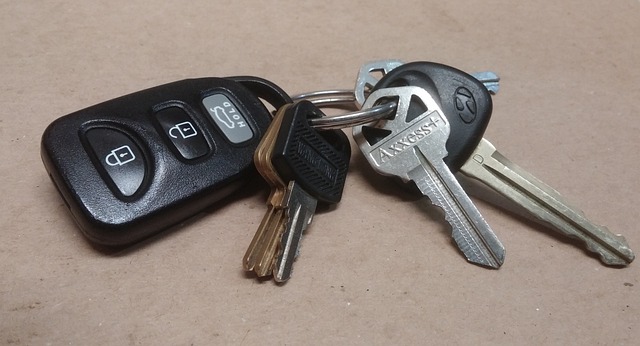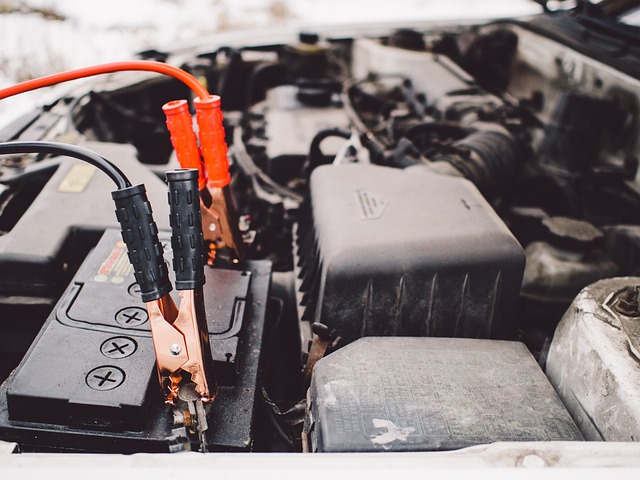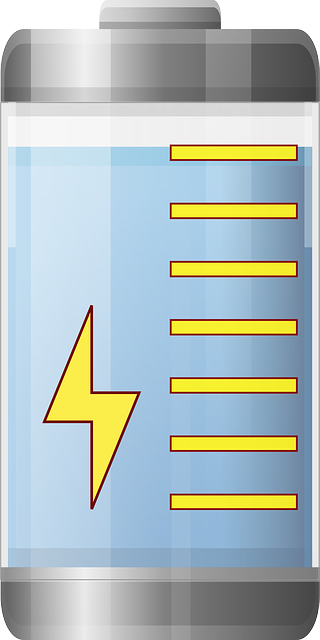2025 is set to be a pivotal year for addressing the environmental and health challenges associated with button batteries, which are commonly found in household devices. A range of initiatives will be implemented worldwide to promote their responsible disposal and recycling, including international partnerships, advanced collection systems, and comprehensive educational campaigns aimed at consumers. These efforts are designed to mitigate the risks of improper disposal and to establish a sustainable circular economy for battery lifecycle management. By focusing on these objectives, the initiatives aim to reduce environmental impact, protect public health, and create economic opportunities, all while fostering a more sustainable society that values responsible electronic waste management. These strategies are critical for ensuring that future generations can reap the benefits of a planet where technology and sustainability coexist harmoniously.
2025 heralds a pivotal year for environmental stewardship, with a significant focus on the responsible recycling of button batteries. This article delves into the transformative community events and initiatives slated for this critical juncture. We will explore the strides in maximizing environmental impact through button battery recycling, the grassroots movements driving change, and the advancements in technology that promise a cleaner future. Corporate commitments, local government policies, and educational outreach programs are set to play pivotal roles, alongside the potential for global collaboration. Each section underscores the importance of collective action in achieving sustainable management of these essential components by 2025. Join us as we chart the path toward a greener tomorrow through responsible button battery disposal and recycling.
- Maximizing Environmental Impact: The Role of Button Battery Recycling in 2025
- Community-Driven Initiatives: Grassroots Efforts for Button Battery Collection in 2025
- Innovative Technologies: Advancements in Button Battery Recycling for 2025
- Educational Outreach Programs: Teaching Responsible Disposal of Button Batteries in 2025
- Corporate Commitment: Major Brands Supporting Button Battery Recycling in 2025
- Local Government Actions: Policy Frameworks for Button Battery Recycling in 2025
- Recycling Workshops and Events: Hands-On Learning for Button Battery Handling in 2025
- Global Collaboration: International Partnerships for Sustainable Button Battery Management by 2025
Maximizing Environmental Impact: The Role of Button Battery Recycling in 2025

2025 presents a pivotal juncture for enhancing environmental sustainability through the responsible disposal and recycling of button batteries. As consumer electronics continue to proliferate, the demand for these small but critical power sources grows. Button batteries, known for their coin-like shape and high energy density, are integral to a wide array of devices, from hearing aids and remote controls to watches and children’s toys. The environmental impact of improperly disposed button batteries is significant, with the potential to contaminate soil and water systems. In 2025, communities must prioritize the establishment of effective recycling programs for these batteries. By collecting and processing used button batteries, valuable materials such as zinc, mercury, lithium, and alkaline metals can be recovered, reducing the need for virgin material extraction and its associated ecological footprint. Recycling efforts also mitigate the risk of hazardous substances entering the waste stream and causing long-term environmental harm. To this end, 2025 community events focused on button battery recycling will not only foster a culture of sustainability but also serve as a model for handling other types of e-waste. These initiatives are crucial for safeguarding the environment and promoting a circular economy where resources are used efficiently and responsibly.
Community-Driven Initiatives: Grassroots Efforts for Button Battery Collection in 2025

In 2025, community-driven initiatives are poised to play a pivotal role in enhancing button battery recycling efforts. Grassroots campaigns are set to become more sophisticated and widespread, leveraging local networks to facilitate the collection of these small but significant environmental hazards. These initiatives will focus on educating communities about the importance of proper disposal, the dangers of improper handling, and the environmental impact of button batteries. Volunteer-led collection points will be strategically placed in high-traffic areas such as libraries, community centers, and schools to ensure accessibility for all residents. Local businesses are also expected to join this sustainability movement by offering return programs for used button batteries, making it a shared responsibility between producers, consumers, and the local environment. The success of these grassroots efforts hinges on collaboration, awareness, and the implementation of convenient, community-focused recycling solutions that reflect the urgency of addressing this growing environmental concern.
The 2025 community events dedicated to button battery recycling will not only involve collection drives but also educational workshops and public awareness campaigns. These initiatives aim to demystify the recycling process, showcasing the technological capabilities behind reprocessing button batteries and the materials that can be recovered. By fostering a deeper understanding of the electronic waste lifecycle, communities can become more engaged and take collective action towards sustainable practices. Additionally, these events will highlight partnerships with local government bodies, recycling facilities, and non-profit organizations, emphasizing the collaborative spirit required to make significant strides in button battery recycling rates. The goal is to create a circular economy where resources are valued and reclaimed, contributing to a cleaner, safer environment for future generations.
Innovative Technologies: Advancements in Button Battery Recycling for 2025

2025 is poised to witness significant advancements in the field of button battery recycling, driven by innovative technologies that promise to enhance both efficiency and environmental sustainability. The current focus in R&D is on developing closed-loop systems that can recover more than just metals from spent button batteries; these systems aim to reclaim up to 95% of their components. Such systems are designed to handle the complex chemistries involved in these small but impactful power sources, which typically include lithium, silver, zinc, and alkaline materials.
One of the most promising trends is the integration of smart sensors and machine learning algorithms that can accurately identify different types of button batteries, sorting them with high precision before the recycling process begins. This selective approach not only optimizes the recovery rate but also minimizes secondary pollution and resource wastage. Additionally, advancements in hydro-metallurgical processes are expected to play a crucial role, allowing for the safe and effective separation of battery components without compromising water quality or public health. These developments underscore a commitment to responsible electronics consumption and a greener future, positioning 2025 as a pivotal year in the evolution of button battery recycling technologies.
Educational Outreach Programs: Teaching Responsible Disposal of Button Batteries in 2025

As we approach 2025, the importance of sustainable practices and responsible disposal of household items, including button batteries, is becoming increasingly evident. Educational outreach programs play a pivotal role in raising awareness about the environmental impact of improper battery disposal. These initiatives aim to inform communities about the potential dangers that button batteries pose when disposed of improperly, particularly the risk they present to children and wildlife. In 2025, these programs will be more sophisticated, utilizing a blend of interactive workshops, online resources, and collaborative efforts with local schools and organizations. The goal is to equip individuals with the knowledge and tools necessary to dispose of button batteries responsibly, which includes understanding where and how to recycle them. These educational efforts are not just about instilling responsible behavior but also about fostering a culture of environmental stewardship that will have long-lasting effects beyond 2025.
Furthermore, the integration of technology and digital platforms into these outreach programs will be key. By leveraging social media campaigns, informative videos, and online forums, communities can stay updated on best practices for battery recycling. The use of QR codes on packaging and in public spaces will direct individuals to disposal sites or recycling centers, making the process as accessible as possible. Additionally, these programs will highlight partnerships with local government bodies and waste management companies, which are crucial for ensuring the infrastructure needed for successful button battery recycling initiatives. The collaborative approach taken by these outreach programs in 2025 will not only educate the public but also create a robust support system for responsible battery disposal.
Corporate Commitment: Major Brands Supporting Button Battery Recycling in 2025

2025 will see a significant uptick in corporate commitment to button battery recycling, with major brands playing a pivotal role in this environmental effort. These companies are not only incorporating eco-friendly practices within their operations but are also actively supporting initiatives that facilitate the responsible disposal and recycling of used button batteries. By partnering with established recycling programs and investing in research for better battery technologies, these brands aim to minimize the ecological impact of their products. They are pioneering consumer awareness campaigns that highlight the importance of proper battery disposal, thereby encouraging widespread participation in recycling efforts. These initiatives underscore a broader trend towards sustainability within the corporate sector, reflecting a growing recognition of the environmental significance of this issue. The commitment of these major brands to button battery recycling is poised to significantly enhance the collection and processing infrastructure, making 2025 a landmark year for progress in this domain. Their support is expected to catalyze a more robust recycling ecosystem, which will be crucial for mitigating the environmental risks associated with improper disposal of these batteries.
Local Government Actions: Policy Frameworks for Button Battery Recycling in 2025

2025 heralds a pivotal year for sustainable practices, with local governments across the nation poised to implement robust policy frameworks for button battery recycling. These policies will be instrumental in guiding community-based initiatives that not only promote responsible disposal but also encourage the recovery of valuable materials from used button batteries. The strategic approach will likely encompass a comprehensive collection program, with clearly defined guidelines and infrastructure support. This includes the establishment of convenient drop-off points, public awareness campaigns, and partnerships with recycling firms specializing in electronic waste. The goal is to streamline the process for citizens, making it as easy as possible to participate in this critical environmental effort. Furthermore, these frameworks will be designed to adapt and evolve, ensuring that they remain effective and responsive to technological advancements and changing societal needs related to button battery recycling. By setting a precedent for responsible battery disposal, local governments aim to significantly reduce the environmental impact of this ubiquitous technology, paving the way for a more sustainable future.
Recycling Workshops and Events: Hands-On Learning for Button Battery Handling in 2025

2025 will see a significant emphasis on community engagement through recycling workshops and events dedicated to the proper handling of button batteries. These interactive sessions are designed to educate participants on the importance of recycling these small but hazardous items. The workshops will provide hands-on experience, teaching attendees how to identify, collect, and safely dispose of used button batteries, which are commonly found in everyday household items such as hearing aids, watches, and remote controls. With an increase in the prevalence of electronic devices containing these batteries, understanding their environmental impact and the correct recycling procedures is crucial for safeguarding public health and the environment. These events will not only cover the technical aspects of button battery recycling but also highlight local facilities equipped to handle this task, thereby fostering a community-wide commitment to sustainable practices. By participating in these workshops, individuals can become informed stewards of their local ecosystems, contributing to global efforts in electronic waste management and promoting a safer, more sustainable future.
Global Collaboration: International Partnerships for Sustainable Button Battery Management by 2025

2025 marks a pivotal year for global sustainability initiatives, particularly in the realm of button battery management. Recognizing the environmental and health risks associated with improper disposal of these small but hazardous batteries, international partnerships are set to bolster recycling programs and promote responsible production practices worldwide. By fostering collaboration between governments, manufacturers, and waste management companies, these initiatives aim to establish a standardized approach to button battery recycling that mitigates environmental impact and ensures the safety of communities. The integration of advanced collection systems and consumer education campaigns will be paramount in achieving this goal, as they will facilitate the proper disposal and eventual reprocessing of billions of button batteries used annually in various devices. As these partnerships evolve, they will not only address the immediate concerns regarding waste but also lay the groundwork for future generations to inherit a more sustainable and responsible world. The collective efforts of these international entities are poised to transform the lifecycle management of button batteries, ensuring a circular economy that is both environmentally conscious and economically viable.
2025 heralds a pivotal year for button battery recycling, with a comprehensive approach that encompasses environmental impact maximization, community-driven initiatives, technological advancements, educational outreach, corporate commitment, and local government actions. These efforts coalesce to form a robust strategy, ensuring the responsible disposal and recycling of button batteries globally. The year ahead promises a collaborative effort across nations, fostering sustainable management of these vital components. As we move towards this future, it is clear that through concerted action, we can safeguard our environment and promote a circular economy for button batteries, marking 2025 as a landmark year in the pursuit of sustainability and environmental stewardship.



